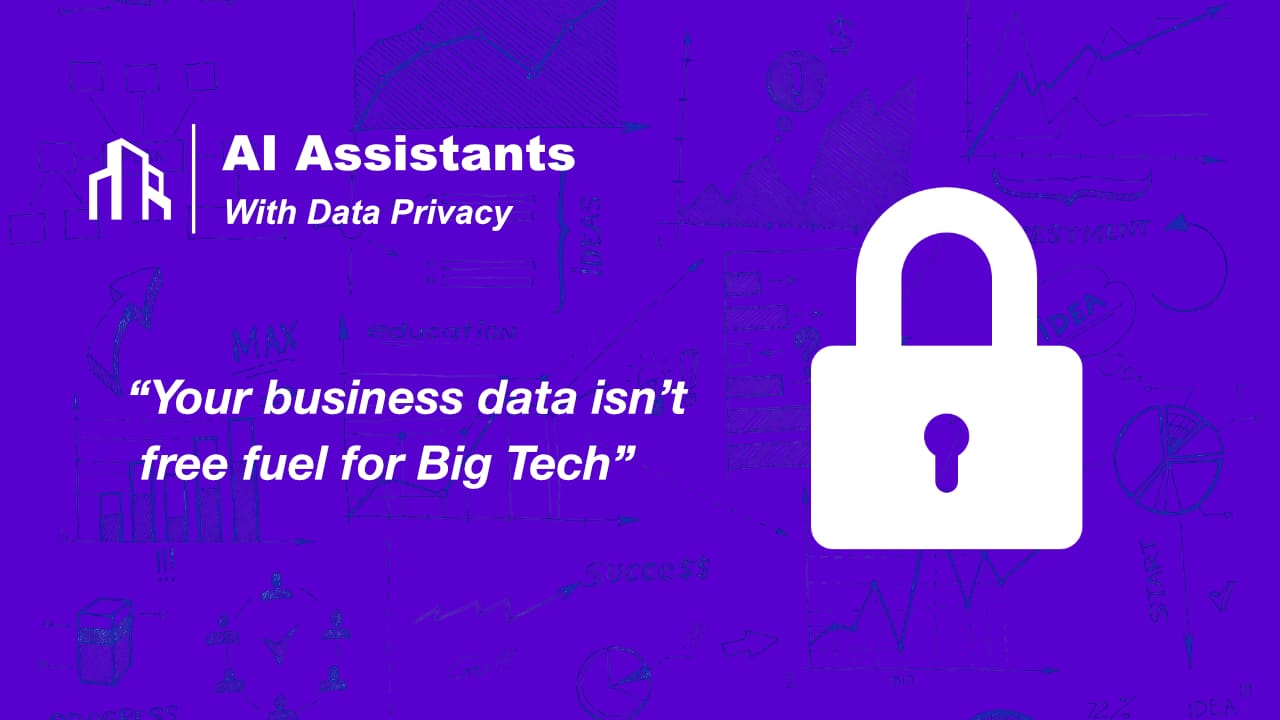AI Assistants and Data Privacy: Who Trains on Your Data, Who Doesn’t

Data privacy has become one of the defining factors in choosing an AI assistant. For businesses and individuals alike, the question is simple: does the assistant use your data to train its models, or does it protect your information by default?
This guide gives you a clear comparison, with a table showing which assistants respect your privacy and which ones use your data for training.
| AI Assistant | Uses Data for Training? | Notes |
|---|---|---|
| Proton Lumo | No | Encrypted, no logging |
| Duck.ai (DuckDuckGo) | No | Anonymous sessions |
| Claude (Anthropic) | No | No persistent memory |
| Read AI | No (opt-in available) | Consent required |
| Open-source / Self-hosted | No | Data remains local |
| Mycroft | No | Fully open-source |
| ChatGPT, Gemini, etc. | Yes (default) | Opt-out required |
| Social media assistants | Yes | Public data reused |
| Braina | Possibly | Mix of local & cloud |
| Analytical platforms | Yes | Uses aggregated data |
Why This Matters
Choosing the wrong AI assistant could mean your sensitive business information is used to improve a third-party model. That may lead to compliance risks, competitive disadvantages, or customer distrust. At Scalevise we see this issue appear across sectors, from AI automation use cases to privacy and governance challenges.
Assistants That Don’t Use Your Data for Training
These platforms are designed with privacy in mind. They do not train on user data by default:
- Proton Lumo – End-to-end encrypted, no logging, no training.
- Duck.ai (DuckDuckGo) – Anonymous queries, no storage or training.
- Claude (Anthropic) – No persistent memory, no training on chats.
- Read AI – Default no-training, explicit opt-in required.
- Open-source or self-hosted assistants – Full local control.
- Mycroft – Open-source virtual assistant with no cloud logging.
Assistants That Do Use Your Data for Training
These platforms either use your data by default or require an opt-out:
- ChatGPT, Gemini and similar tools – Default training unless disabled.
- Social media-based assistants – Data from public accounts is often used.
- Braina – Mix of local and cloud models, limited transparency.
- Analytical platforms – Aggregate user data to improve features.
Key Takeaways
- Privacy-first assistants are the best choice for regulated industries and businesses handling sensitive data.
- Opt-out platforms require proactive settings failing to configure them may expose your data.
- Open-source or self-hosted solutions provide the highest level of control but demand technical know-how.
If your business is evaluating AI assistants, privacy should be part of your selection criteria. At Scalevise, we help organizations align automation and AI adoption with compliance and data protection needs. Learn more about how we approach AI governance or explore our AI automation services.
Conclusion
Not all AI assistants are equal when it comes to data protection. By understanding which platforms protect your data and which ones use it for training, you can make informed choices that safeguard your business and your customers.
FAQ
Do all AI assistants use my data?
No. Not every AI assistant relies on your personal or business data for training. Privacy-first solutions such as Proton Lumo or Claude avoid using conversations for model improvement, which keeps interactions private.
Can I prevent ChatGPT or Gemini from using my data?
Yes. Both ChatGPT and Gemini allow you to opt out of training, but the settings are not enabled by default. You need to configure your account to make sure your conversations are excluded.
What’s the safest option for compliance-heavy industries?
Open-source or self-hosted assistants are the safest choice because all processing happens locally. This ensures no external provider can use or access your data.
Are enterprise AI plans different when it comes to data usage?
Yes. Many vendors offer enterprise plans where customer data is contractually excluded from training. Businesses that require strict compliance should always negotiate and verify these terms.
How can I verify if my data is being used for training?
Most providers publish data usage policies in their documentation. You can also review the privacy settings in your account to see if training is enabled or if opt-out options exist.
Do open-source assistants require technical expertise?
Yes. Running a self-hosted or open-source model requires setup and maintenance. However, it gives organizations full control over their data without reliance on external vendors.
What risks come with using assistants that train on my data?
The main risks include data leakage, non-compliance with privacy regulations, and exposing sensitive business information to third parties. These risks can lead to financial, reputational, and legal consequences.
Is opting out enough to ensure privacy?
Opting out reduces risk, but it doesn’t guarantee full protection. Some providers may still store logs temporarily, and employees must be trained to use assistants responsibly.
Which type of assistant is best for small businesses?
Small businesses without technical teams may prefer privacy-first commercial tools like Proton Lumo or Claude. These offer strong protections without requiring complex setup.
